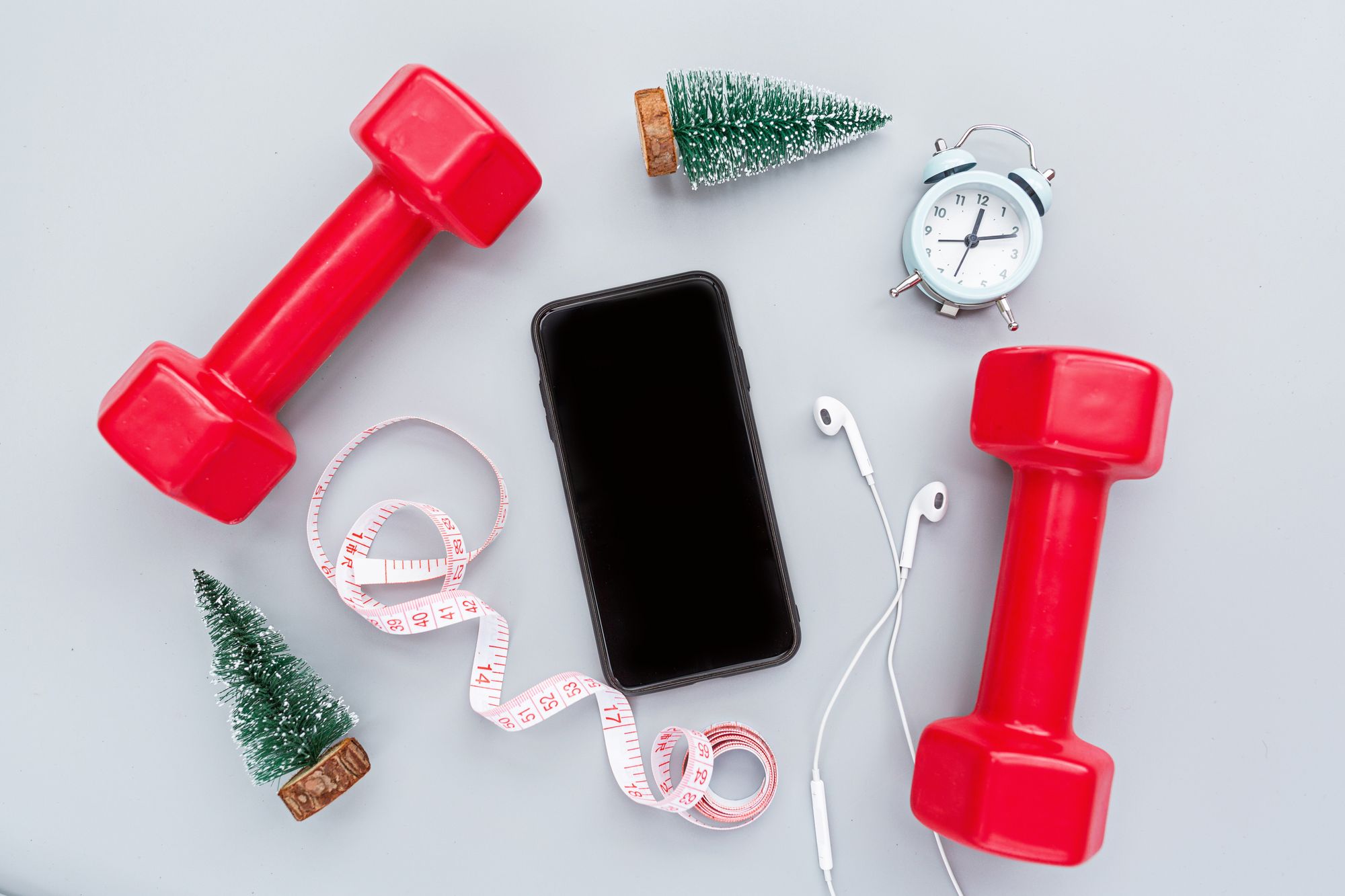New Year Resolutions: The Secret to (Actually) Achieving Them
It's been a long time since you've achieved any of your New Year resolutions - why? Find out in this article so you can make 2022 different.

Is it just me … or does it seem like we were just making New Year resolutions for 2020 a week ago (where things like "travel the world" were still possible)? ?
Regardless. Your Google Calendar is correct; 2022 is right around the corner.
Let's be honest. Chances are, you haven't completed any New Year resolutions for a long time now. And while you may be tempted to blame it on external factors (e.g., pandemic, other people, your pets), the truth is that the problem may lie with you.
Now, before you get all dramatic, no, I'm not implying that you're lazy, unmotivated, or irresponsible. Instead, the underlying issue may be that you’re setting the wrong type of goals.
But what does that mean – and how can you go about setting the “right type” of goals? Let’s explore.
What are New Year's resolutions?
First things first. What are New Year's resolutions?
While it has its roots in religion, New Year’s resolutions today are a mostly secular practice where individuals resolve to do and be better in the future (i.e., self-improvement).
Put another way: resolutions are essentially goals people set for themselves – but in anticipation of a "new beginning" offered by the upcoming new year.
Mastery- vs. performance-oriented goals
Read enough self-improvement articles on goal setting, and you’ll be well-acquainted with the importance of setting “SMART” (i.e., Specific, Measurable, Achievable, Realistic, and Time-bound) goals.

Here’s the thing, though. “SMART” goals do indeed boost your chances of achieving your New Year resolutions. But it still doesn’t do quite enough.
You need to go beyond – and think about the overarching type of goal you’re setting. More specifically, you’ll have to ask yourself: “Am I setting a mastery- or a performance-oriented goal?”
Um, what’s the difference between the two? Good question:
- Performance-oriented goal: Goals that are directly correlated to an outcome (e.g., “I want to squat 2x my body weight.”)
- Mastery-oriented goal: Goals that are focused on skill-improvement; becoming better (e.g., “I want to have the best squat form I could possibly have based on my anatomy.”)
Benefits of setting mastery-oriented goals in New Year resolutions
Still struggling to see a difference between mastery- vs. performance-oriented goals? No worries. Let's dive a little deeper into both examples. So, let's say your goal is to squat 2x your body weight. It's very specific.
And this characteristic isn’t inherently a bad thing – but it’s just that it could bring about two downsides, depending on whether you ultimately achieve the goal:
- If you do: Your journey ends there. You’ve already squatted 2x your body weight; what else do you want?
- If you don’t: You’ll likely become discouraged and may even start hating the exercise (have you ever met someone who adamantly refuses to squat despite being perfectly able to?)
On the other hand, imagine if your goal is “perfect” (disclaimer: there is no single perfect form that applies to everyone) your squat form. Think about it carefully. There’s no set “end-point”.
Instead, you’ll constantly be striving for progress. Maybe it’s an increased range of motion. Or perhaps it’s the maintenance of a tight and stable core throughout the lift. There’ll always be something to improve upon – and every bit of improvement fuels your motivation to keep learning, practicing, and improving.
Looking for a summary? Here it is:
- Performance goals will likely make you: Feel anxious, engage in superficial learning habits, get discouraged in the face of failure, value self-worth based on outcome (i.e., “I suck because I can’t squat 2x my body weight.”)
- Mastery goals will likely make you: Choose greater challenges, use adaptive learning strategies (e.g., “perfecting” the goblet squat before moving onto the barbell squat), seek help when needed (e.g., hiring a personal trainer), and persist in the face of obstacles
How to set mastery goals
Okay, the secret to achieving your New Year resolutions is to set mastery-oriented goals.
But how do you do that while still ensuring that you’re respecting the “SMART” nature of good goal setting? (Because how can mastery-oriented goals be Time-bound?)
Well, let’s practice reframing one of the most popular performance-oriented New Year resolutions around together: “Lose XX kg in 3 months.”
Think about what needs to happen for weight loss. You’ll have to improve your dietary and exercise habits.
So, a better, mastery-oriented way of approaching this New Year’s resolutions would be by setting the following two goals instead:
- “Eat better at least 3 times a week for the next 3 months.”
- “Exercise at least 2 times a week for the next 3 months.”
Both options emphasize consistency – and give you the freedom to choose how you could act on the goal.
For instance: “eating better” could mean meal-prepping, choosing healthier choices at your favorite restaurants, or cutting down on your existing meal portions. On the other hand, “exercise” could mean brisk walking around the neighborhood, climbing stairs, or heading to the gym. So there's always an opportunity for you to do better, even within a specific set period.
Better still: simply acting on the goals alone will (more likely than not) help you achieve a calorie deficit, which is necessary for weight loss.
So, while you may not have hit a 10 kg body weight loss, you would still have lost some weight, plus learned how to make sustainable lifestyle adjustments you can stick to. It’s easy to see which is the better option.
Ready to set mastery-oriented New Year resolutions?
Have a list of mastery-oriented New Year resolutions? We can’t wait to see you crush them.
Psst: don’t be shy about using GymStreak – your AI-powered, smart personal trainer app – for all your fitness-related resolutions! All workout programs will account for your current fitness capabilities and future goals.
Better still, there are tons of resources (spanning from hypertrophy optimization to injury prevention to recovery techniques) geared toward helping you get in the best shape possible. Get exploring GymStreak here, just in time for the new year (it rhymes!)
References
Alrakaf, S., Sainsbury, E., Rose, G., & Smith, L. (2014). Identifying Achievement Goals and Their Relationship to Academic Achievement in Undergraduate Pharmacy Students. American Journal of Pharmaceutical Education, 78(7), 133. https://doi.org/10.5688/ajpe787133
Benita, M., & Matos, L. (2021). Internalization of Mastery Goals: The Differential Effect of Teachers’ Autonomy Support and Control. Frontiers in Psychology, 11, 599303. https://doi.org/10.3389/fpsyg.2020.599303
Pulfrey, C. J., Vansteenkiste, M., & Michou, A. (2019). Under Pressure to Achieve? The Impact of Type and Style of Task Instructions on Student Cheating. Frontiers in Psychology, 10, 1624. https://doi.org/10.3389/fpsyg.2019.01624

